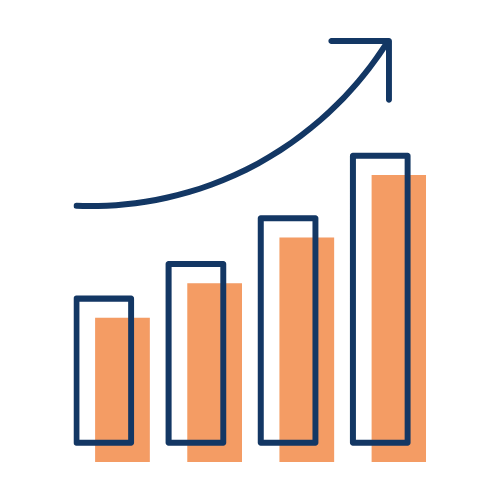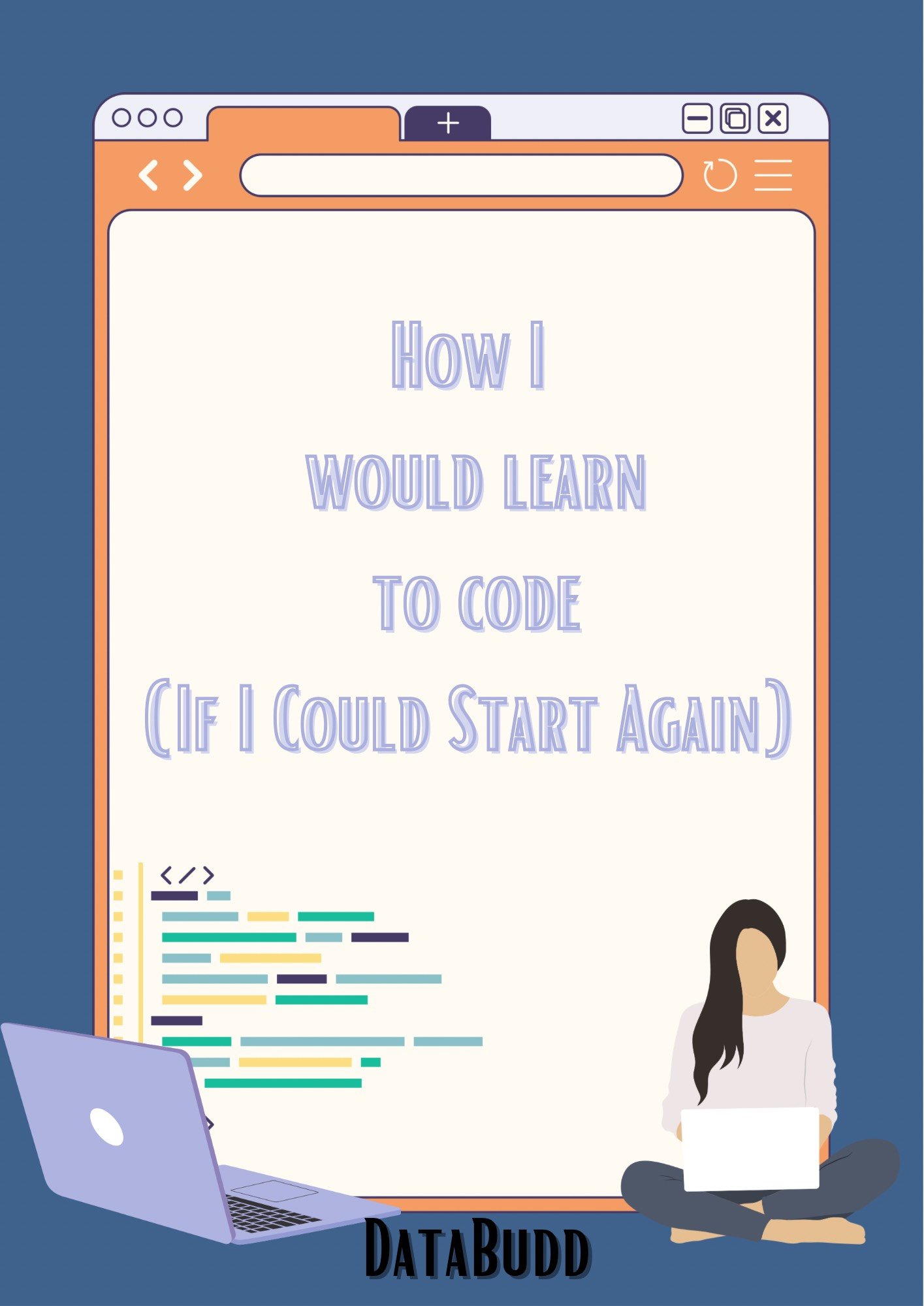How I Would Learn to Code (If I Could Start Over)
Introduction:
Learning to code has become increasingly valuable in our digital world. With the demand for coding skills on the rise and the constant evolution of technology, there is a wealth of opportunities for those who embark on this journey. In this blog post, I will outline a step-by-step approach to learning how to code, based on my experience and insights. Whether you're a beginner or someone looking to switch careers, these guidelines will help you navigate the path to becoming a proficient coder.
Why Learn to Code?
Before diving into the process, it's essential to understand why learning to code is worth your time and effort. Here are three compelling reasons:
Embracing a Digital World: Our world is becoming increasingly computerized, and coding is at the heart of it. Learning to code allows you to actively participate in shaping the future, explore emerging technologies like machine learning, and unleash your creativity in a rapidly evolving digital landscape.
Boosting Market Value: Coding skills are in high demand and adding them to your resume significantly enhances your market value. Employers across various industries are seeking individuals with coding expertise, making it an asset that can open doors to exciting job opportunities and higher earning potential.
Continuous Learning: The field of coding is ever-changing, ensuring that you will always be learning and evolving. This constant need to adapt keeps the journey exciting and intellectually stimulating. By engaging in coding, you join a community of lifelong learners who are passionate about exploring new technologies and solving complex problems.
Choosing a Language:
The next step on your coding journey is choosing a programming language. Each language has its strengths and applications, so consider your goals and interests when making this decision. Here are a few popular languages and their common uses:
JavaScript: Ideal for web development, as it enables interactivity and dynamic content on websites.
Python: Widely used in data analysis and machine learning, with a vast array of libraries and frameworks available.
C++: Well-suited for game development, offering high performance and low-level control.
If you're uncertain which language to choose, Python is an excellent option due to its versatility, extensive online resources, and supportive community. Other frequently used languages include JavaScript, HTML/CSS, and SQL.
Embarking on a Fundamentals Course:
Once you've chosen a programming language, it's beneficial to start with a fundamentals course or some form of formal learning. Numerous online platforms, such as YouTube, Udemy, and freeCodeCamp, offer free or affordable courses for beginners.
For example, if you decide to learn Python on Udemy, consider exploring various Python courses available, including my Python Course (or any other course that suits your learning style and preferences). Formal courses provide structured guidance, teaching you essential concepts, recommended IDEs (Integrated Development Environments), and installation processes. They also help you establish a solid foundation, ensuring you spend less time troubleshooting or finding workarounds.
The Power of Projects:
One of the most vital aspects of learning to code is undertaking projects. Engaging in hands-on, practical coding exercises allows you to apply your knowledge and reinforce your understanding of programming concepts. When choosing a project, select something that genuinely interests you and aligns with your learning goals.
For instance, if you're learning Python, consider creating a dashboard that showcases statistics and wins of your favourite sports team. If you're focusing on JavaScript, building a personal website that serves as your online resume can be an exciting project. Additionally, reimplementing classic games like Snake using C++ can be both challenging and enjoyable.
A valuable resource for finding project ideas is Kaggle.com, where you can explore completed competitions. These competitions provide problem descriptions, datasets, and even code samples from participants. You can utilize these competitions as a starting point for your projects, adapting and enhancing existing code to create something unique.
The benefits of coding projects extend beyond skill development. They keep you motivated, offer tangible evidence of your progress, and provide compelling additions to your portfolio or resume. Potential employers appreciate seeing completed projects that demonstrate your abilities and dedication.
Building a Supportive Community:
Learning to code can be a solitary pursuit but connecting with a community can immensely enhance your learning experience. As you progress, you'll likely encounter challenges that you can't solve on your own. This is where a community can provide invaluable support and guidance.
Look for local programming groups, networking events, meetups, and hackathons in your area, as they offer opportunities to meet like-minded individuals. Online platforms like Slack and Discord have dedicated channels for coding communities. Websites such as Stack Overflow, r/learn programming, and GitHub host active communities where you can ask questions, seek advice, and engage in discussions with experienced coders.
Being part of a community not only helps you solve problems efficiently but also fosters collaboration, exposes you to diverse perspectives, and encourages you to push the boundaries of your coding skills.
Free Websites to Learn Coding
As you embark on your coding journey, it's important to take advantage of the wealth of free information available on the internet. Here are some examples of websites where you can find valuable resources without breaking the bank:
· FreeCodeCamp (freecodecamp.org): FreeCodeCamp is an interactive learning platform that offers a comprehensive curriculum covering web development, data science, and more. Their curriculum is project-based, allowing you to learn by building real-world applications. They also have a supportive community and provide opportunities for you to contribute to nonprofit projects.
· Codecademy (codecademy.com): Codecademy provides hands-on coding courses for various programming languages. While they offer both free and paid content, their free courses cover the fundamental concepts of popular languages like Python, JavaScript, and HTML/CSS. Codecademy's interactive learning environment allows you to practice coding directly in the browser.
· Mozilla Developer Network (MDN) (developer.mozilla.org): MDN is a comprehensive resource for web developers, maintained by Mozilla. It offers documentation, tutorials, and guides on web technologies, including HTML, CSS, JavaScript, and more. The content is well-structured and regularly updated, making it an invaluable reference for beginners and experienced developers alike.
· W3Schools (w3schools.com): W3Schools provides tutorials and references on web development technologies such as HTML, CSS, JavaScript, and SQL. Their content is beginner-friendly and includes interactive code examples that you can experiment with directly on their website. W3Schools is known for its straightforward explanations and easy-to-understand format.
· Stack Overflow (stackoverflow.com): Stack Overflow is a question-and-answer platform where developers can ask questions and receive answers from the community. It's an excellent resource for troubleshooting coding issues, understanding concepts, and learning from experienced developers. Search for specific coding problems or browse through related questions to expand your knowledge.
· YouTube: YouTube hosts a vast collection of coding tutorials and educational channels. Channels like "freeCodeCamp," "Traversy Media," and "The Net Ninja" offer quality content on various programming languages and frameworks. You can find step-by-step tutorials, coding challenges, and walkthroughs of projects that can help you learn and reinforce your skills.
· GitHub (github.com): GitHub is a platform primarily used for version control and collaboration in software development. However, it also serves as a repository of open-source projects and code samples. Exploring GitHub repositories related to your programming language of choice can provide insights into best practices, code organization, and real-world examples.
Conclusion:
Learning to code is an exciting journey that can unlock a multitude of opportunities. By understanding the reasons behind learning to code, choosing the right language, taking formal courses, engaging in projects, and joining a supportive community, you'll be well on your way to becoming a proficient coder. Remember, the path to coding mastery is continuous learning, exploration, and a mindset of curiosity and perseverance. Embrace the adventure, and let coding propel you into a world of endless possibilities.


